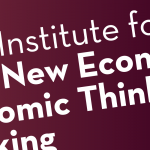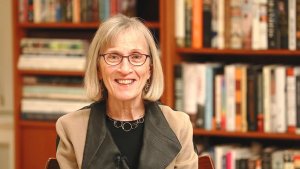A recent New York Times article highlighted an issue that INET is very familiar with: the gender disparity in who is considered a scholarly authority.
The authors of the piece, Amanda Taub and Max Fisher are right: Gender discrimination begins early on in school and only increases in the course of academic careers. But there’s more. The hierarchical, male-dominated structure of academia—especially present in economics—hinders women’s job advancement and visibility, but also reduces their creativity by incentivizing them to choose conventional research paths.
Pluralism of scholarly thought has to be a key part of our fight for gender equality if we want women to make a difference with ideas, even when they threaten established theory. Foundational to our mission is the belief that new ideas in economics come from rejecting popular but unrealistic economic models which misrepresent the precision and objectivity of technical judgement, and from recognizing the provisional, value- and historically-determined nature of economic knowledge.
But how can we make sure that these challenging new theories get heard, and that those individuals who produce them—especially women—find an equal and fair supportive environment?
As two Nobel prize winners







